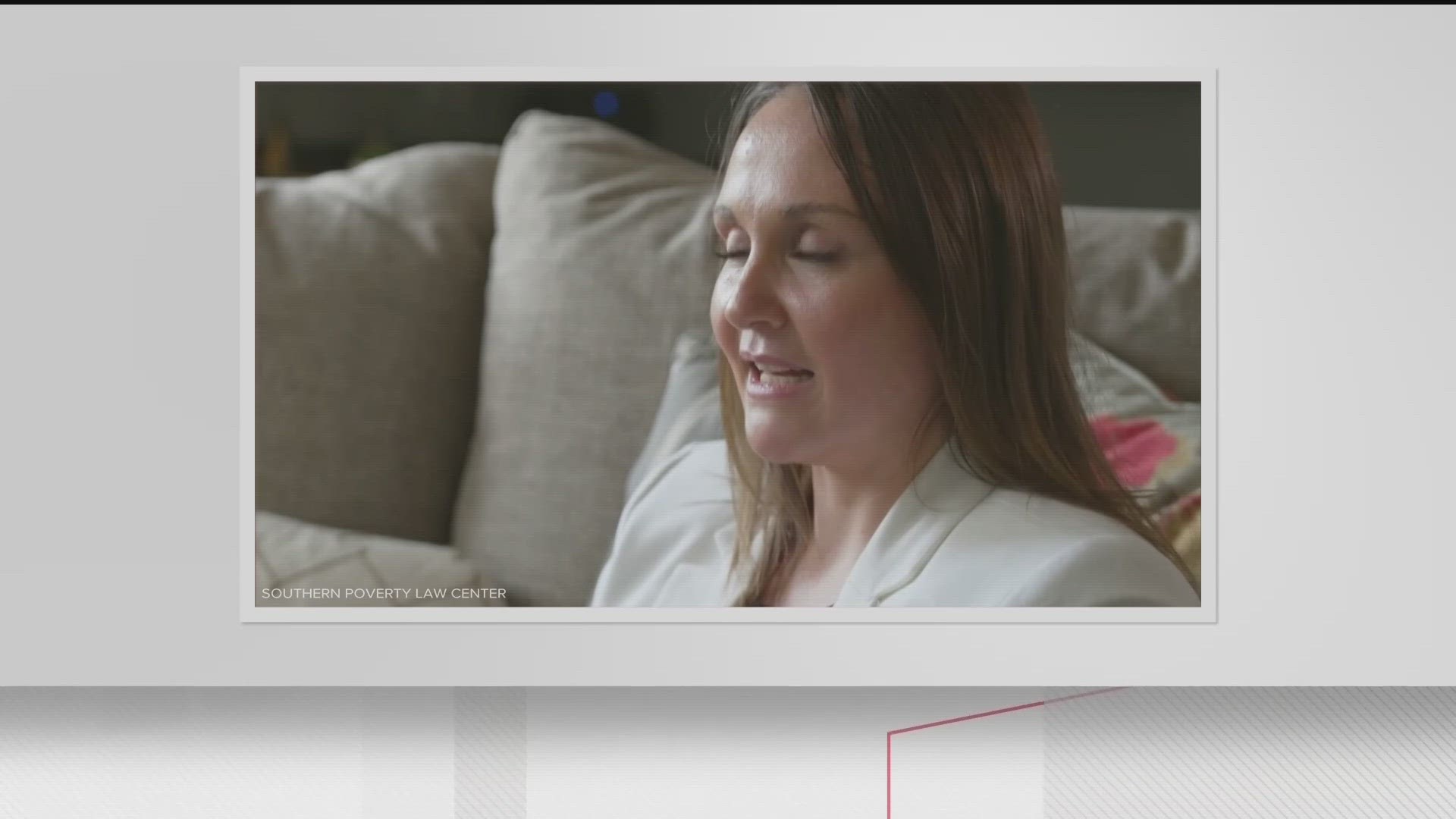COBB COUNTY, Ga. — The Georgia Board of Education has upheld the decision to fire a Cobb County teacher over reading a book.
The state board unanimously voted on Thursday to affirm Cobb County School Board's decision to fire 5th-grade gifted specialist Katie Rinderle for reading a book in her class called "My Shadow Is Purple," which addresses gender identity.
Rinderle worked at Due West Elementary School and was terminated in August 2023 after a months-long saga about whether she was purposely defying district policies and breaking Georgia's Divisive Concepts Law by reading the book to her class. The legislation places restrictions on how grade school teachers can discuss race and other topics in the classroom. Proponents, including Gov. Brian Kemp and other Republicans, have argued the law prohibits the teaching of "divisive concepts."
This past August, Cobb County School Board members voted four to three to accept the superintendent's recommendation to terminate Rinderle. She had been on paid leave until the board made this decision.
Rinderle then subsequently appealed to the state board following this decision. According to a document by the state, it agreed with the local board's position, stating that Rinderle's argument that the district's policies about what defined controversial or sensitive topics were vague and undefined lacked merit. Overall, the state board stated that in viewing precedent from prior board decisions and Georgia law, the violation of district policies was sufficient evidence to support the local board's decision to fire Rinderle.
Craig Goodmark, the teacher's attorney, previously told 11Alive that teachers statewide are receiving little guidance about what is legal under the state's new law against "divisive concepts," which requires parental consent before anything divisive is taught in the classroom.
“It’s impossible for a teacher to know what’s in the minds of parents when she starts her lesson," Goodmark said. "And for parents to be able, with a political agenda from outside the classroom, to come in and have a teacher fired is simply unfair, it’s not right, and it’s terrible for Georgia’s education system."
A spokesperson for the Cobb County School District said that they're confident in the process that led to a tough decision to part ways with a staff member.
"We are grateful that the State Board of Education took the opportunity to review the situation in detail and, having studied all the available material, confirmed our district's actions," the spokesperson stated. "We will continue to put the safety and education of our students ahead of all other considerations."
The Senior Supervising Attorney for the Southern Poverty Law Center (SPLC), Mike Tafelski, said they are not surprised by the state board's decision.
“The decision sends a troubling message to educators, students and families across Georgia that teachers risk their employment simply by teaching inclusion and acceptance," Tafelski said. "We are seeing this growing wave of censorship across Georgia and the country, threatening public education and our democracy. We will continue to pursue all legal options to defend educators like Ms. Rinderle and ensure all students have access to an inclusive education.”
That said, this appeal is not the only way Rinderle is fighting her termination. Earlier this month, Georgia educators, including Rinderle, and the SPLC filed a federal lawsuit against the Cobb County School District.
The lawsuit alleges the district's policies to have been used to unlawfully discipline those for mentioning LGBTQ+ and gender-nonconforming people and their experiences in the classroom -- causing a violation of the Equal Protection Clause of the 14th Amendment of the U.S. Constitution.
This is the first federal lawsuit challenging classroom censorship policies in the state, according to a SPLC release. It also comes at a time when other districts in Georgia and across the nation have been removing controversial books in schools.
So, although Rinderle was denied her appeal, the federal lawsuit could be the other course of action to give Rinderle what she desires. The lawsuit, in general, is seeking an injunction to block the district from enforcing the policies that restricted Rinderle from reading the book and caused her termination. It is also seeking damages and additional relief, including her reinstatement.
Rinderle's lawyer, Craig Goodmark, previously told 11Alive in August that she is still eligible to teach in the state and has fielded inquiries from interested school districts. According to Goodmark, Rinderle is willing to do what is necessary to secure her civil liberties and rights.

